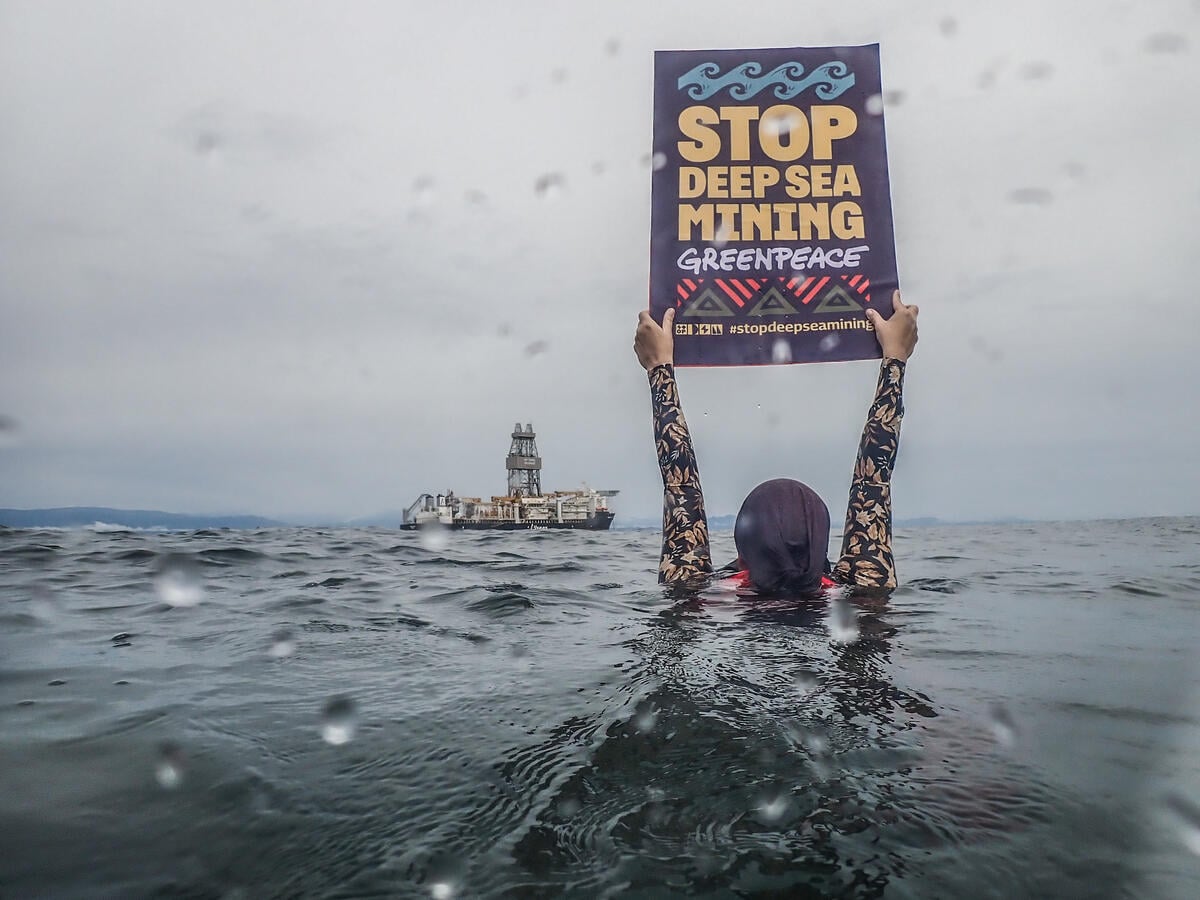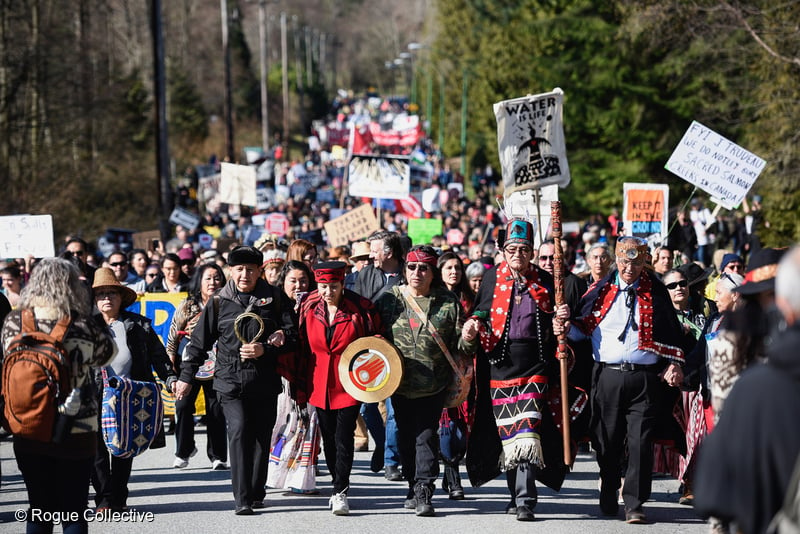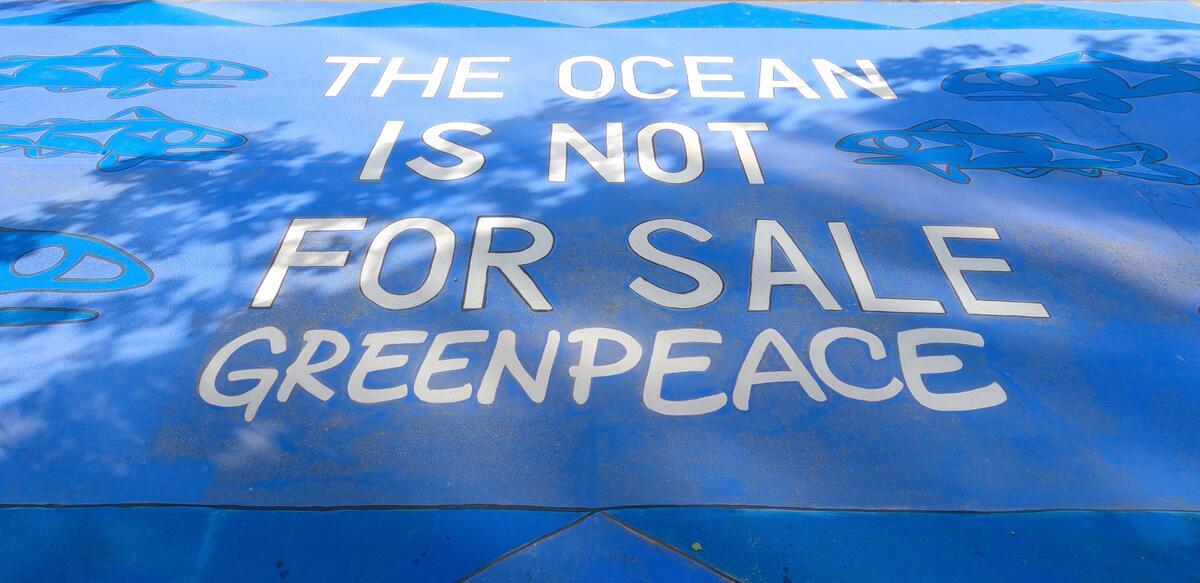TIOHTIÀ:KE – MONTREAL – Today, Indigenous leaders from around the world, including Brazil, Canada, the Democratic Republic of Congo, Cameroon and Indonesia, gathered in Montreal (Tiohtià:ke) to voice their expectations for the decade-defining negotiations on nature protection that started earlier this week.
The UN Biodiversity Conference (CBD COP15) is the long-awaited moment that will define how nature and wildlife will be protected for the next decade – the stakes are extremely high. With 1 million species at risk of extinction worldwide, it is clear that nature is in crisis. So, it needs protection. A clear indicator of success for these negotiations will be how much they enshrine Indigenous knowledge as a science of the land in its own right.
Since time immemorial, Indigenous communities have lived in harmony with nature. Comprising less than 5% of the world’s population, Indigenous People manage to protect 80% of the world’s existing biodiversity, despite ongoing rights violations and criminalization of their traditional practices. A new contract between humans and nature must therefore shift the colonial paradigm that centers around extraction and decolonize our approach to nature protection by upholding the rights of Indigenous Peoples.
Dinamam Tuxá, Executive Coordinator for the Articulation of Indigenous Peoples of Brazil, said:
“It is impossible to talk about biodiversity conservation without mentioning Indigenous Lands. Globally, areas managed by Indigenous Peoples are among the most conserved, even though we, Indigenous Peoples, represent a small part of the population. However, we remain outside the decision-making process and without our rights to our territories. We hope that this COP15 will recognize our rights and that it will create more space for our official participation.”
Orpha Yoshua, an Indigenous Namblong woman from West Papua, Indonesia, said:
“It is just as arrogant and wrong for the government to give our forest over to palm oil companies as it is to grab it for ‘conservation’. No one knows better than us the value of our forest – its food plants, game, birds of paradise and all the other unique creatures, and no one knows better how to protect it. Recognize our rights and our expertise, and we will do as we always have – keep the forest safe and protect the land we come from, not only for ourselves but for every being on earth.”
Ronald Brazeau, Interim Director of Natural Resources Department of Lac Simon First Nation, said:
“In Canada, habitat loss has pushed many species to the brink of extinction. The caribou, an essential species in Indigenous cultures and traditions, is an iconic example. But it is not just the caribou that is threatened, it is all life that depends on it. Indigenous Peoples are being forced to change our ways of life and as a result communities are suffering physically, mentally and spiritually.
The disregard for Indigenous rights in our lands to protect nature is a form of systemic racism. This must be changed at COP15. It is time for our voices to be heard.”
Valentin Engobo, Lokolama Indigenous community leader, Congo Basin, said:
“The only ethical and ecologically viable way to protect nature is to recognize the rights of the Indigenous Peoples who live there and who have used our traditional knowledge to protect it for decades. To be effective, the new Global Biodiversity Framework must guarantee the full involvement of Indigenous Peoples and local communities in the management and decision-making concerning forest areas. It’s as simple as that!”
ENDS
Notes to editors:
Speakers bios: here
Photos can be found here and will be updated throughout the day
For more information, please contact:
Dina Ni, Communications Officer, Greenpeace Canada
[email protected]; +1 (416) 820-2148



